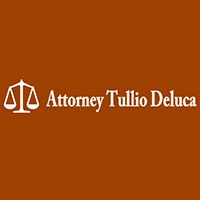Taylor Divorce & Family Law Lawyer, Pennsylvania
Tullio DeLuca
✓ VERIFIEDBankruptcy & Debt, Accident & Injury, Divorce & Family Law, Employment, Estate
Tullio DeLuca was admitted to bar in 1990 in Pennsylvania, US District Court, Middle, Eastern and Western Districts of Pennsylvania. Attorney DeLuca r... (more)
Dennis J. Mark
Social Security -- Disability, Family Law, Medical Malpractice, Wills & Probate
Status: In Good Standing
Molly Dempsey Clark
Election & Political, Family Law, Business Organization, Collection
Status: In Good Standing
Alfred J. Weinschenk
Real Estate, Traffic, Divorce & Family Law, Criminal
Status: In Good Standing Licensed: 48 Years
Alyce Hailstone Farrell
Lawsuit & Dispute, Government, Divorce & Family Law, Business
Status: In Good Standing


